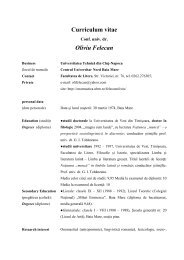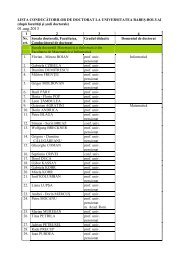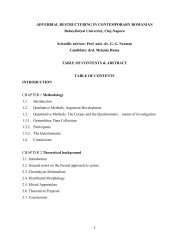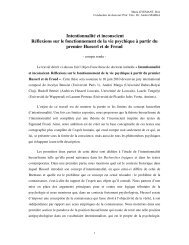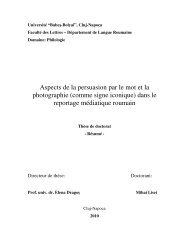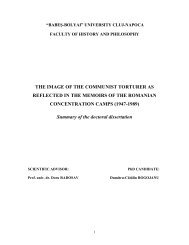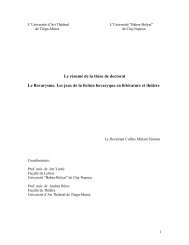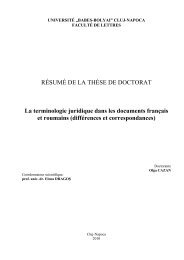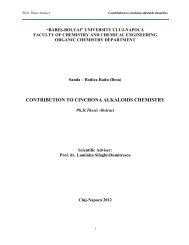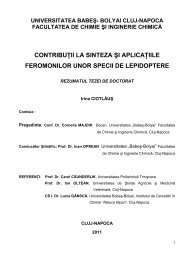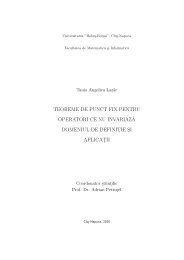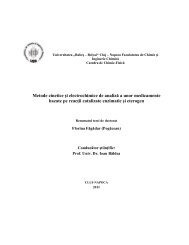Contemporary debates concerning the axiology of democracy
Contemporary debates concerning the axiology of democracy
Contemporary debates concerning the axiology of democracy
Create successful ePaper yourself
Turn your PDF publications into a flip-book with our unique Google optimized e-Paper software.
in post-modern, in order to redress <strong>the</strong> cultural identity <strong>of</strong> cognitive deficiencies and depreciation<br />
difference, and under <strong>the</strong> signs <strong>of</strong> recognition and difference.<br />
Ethics Policy huge potential to mobilize moral sense <strong>of</strong> <strong>the</strong> Constituent Western<br />
societies.The common moral sense is defined notion <strong>of</strong> respect for <strong>the</strong> moral value <strong>of</strong> all persons<br />
and subscribe to many <strong>of</strong> cultural recognition applications have been successfully<br />
institutionalized in multiculturalism and equality legislation.<br />
Ethics Policy facing <strong>the</strong> need to actively form a new political subjectivity and cultural<br />
norms necessary reform to undermine and replace <strong>the</strong> post-modern domination <strong>of</strong> daily anxiety.<br />
Usually, public political debate is conducted arguing that doctrine or policy is able to<br />
provide maximum benefit society which is not itself <strong>the</strong> subject <strong>of</strong> public dispute. Values<br />
certainly can motivate political action and voters may prefer one party to ano<strong>the</strong>r, based on <strong>the</strong><br />
introduction <strong>of</strong> hierarchical values. But values are not easily changed and successful policy in<br />
general is charging values underpinning policy and <strong>the</strong> ability to effectively present to defend<br />
<strong>the</strong>se values, ra<strong>the</strong>r than trying to change values held by voters or o<strong>the</strong>r political actors.<br />
Ethics Policy extend political action and, in particular, facilitate <strong>the</strong> politicization "<strong>of</strong><br />
everyday life in a new way. Ethics Policy political field open to all people, whe<strong>the</strong>r <strong>the</strong>y have a<br />
political affiliation, or political knowledge and expertise. Ethics policy is both radical and non-<br />
elitist, while challenging, both mainstream and academics at a demanding level. Most<br />
importantly, a common area open ethics policy for <strong>the</strong> productive engagement <strong>of</strong> all parts <strong>of</strong><br />
political thought.<br />
Sometime between 1759 when Adam Smith's <strong>the</strong>ory <strong>of</strong> moral sentiments and 1776 when<br />
he wrote an inquiry into <strong>the</strong> nature and causes <strong>of</strong> <strong>the</strong> Wealth <strong>of</strong> Nations, ethics and economics<br />
were finally separated, <strong>the</strong> economy is made up <strong>of</strong> people whose life was guided by <strong>the</strong> invisible<br />
hand .<br />
Modernity has been characterized, according to Hegel, <strong>the</strong> emergence <strong>of</strong> civil society for<br />
centuries, because civil society is <strong>the</strong> first institution to introduce between families on <strong>the</strong> one<br />
hand and political life and on <strong>the</strong> o<strong>the</strong>r hand, <strong>the</strong>se two traditional areas remained significant<br />
places for producing and defending human values and human needs, needs that could not be



